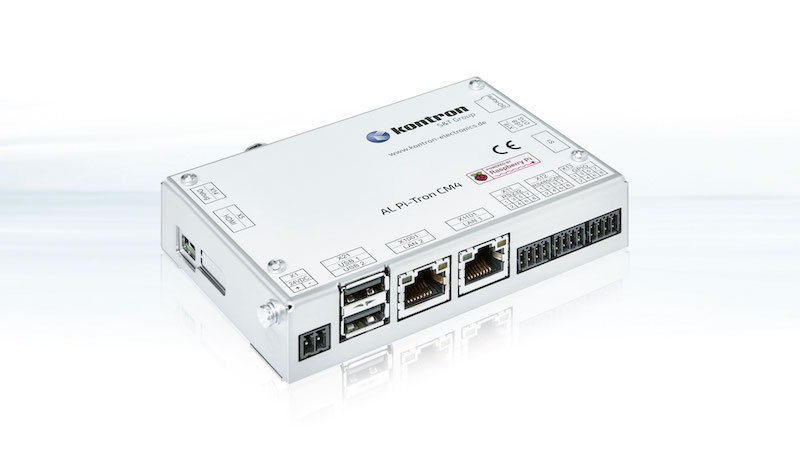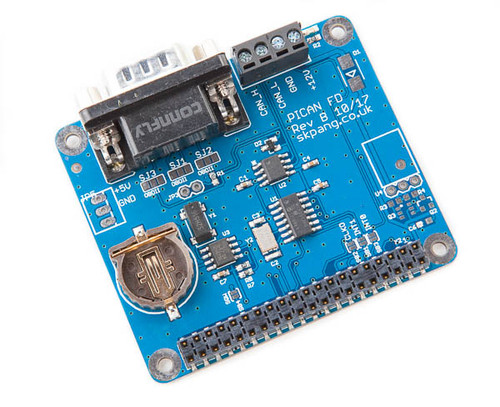Recent Posts
Raspberry Pi Compute Module With CAN FD for Automation and IoT Applications
Posted by on
Kontron announced the release of their Pi-Tron CM4 computer with Linux OS, which utilizes the fourth-generation Raspberry Pi compute module with the 1,5-GHz, 64-bit Broadcom BCM2711 chip and four Arm Cortex-A72 processors.
The computer’s steel housing allows for universal use, e.g., for automation and IoT (Internet of Things) applications. Depending on the variant, it provides a 1-GiB, 2-GB, 4-GiB, or 8-GiB SDRAM memory with options up to 32 GiB using the eMMC card. The available interfaces include CAN FD, EIA-485, a 40-pin GPIO (General-Purpose IO) header, an HDMI slot, and an LVDS display connector through an adapter board. A further option is a pre-certified wireless LAN/Bluetooth connection.
An M.2 B key slot with a PCIe connection allows the usage of related standard modules. For instance, the user may implement individual AI (artificial intelligence) solutions for machine vision and machine/deep learning with the Hailo-8 AI modules or the Google Coral AI Edge TPU (Tensor Processing Unit).
In addition, the Raspberry Pi supports the use of LTE modules with SIM cards and an external antenna connection to integrate IoT solutions. A significant advantage of the Raspberry Pi single-board computer is its enormous community, with numerous software models and a pool of compiled program packages available. Furthermore, several expansion modules utilizing the GPIO header are obtainable through the ecosystem.
PICAN CAN Bus FD Board with Real-Time Clock for Raspberry Pi
The PiCAN FD board provides CAN Bus FD (Flexible Data Rate) capability for the Raspberry Pi 3. It uses the Microchip MCP2517FD CAN FD controller with an MCP2562FD CAN transceiver. Developed by Bosch, CAN with Flexible Data-Rate (CAN FD) is an extension to the original CAN protocol as specified in ISO 11898-1 that responds to increased bandwidth requirements in automotive networks.
The connection is established via DB9 or 4-way screw terminal. The board is also available with a 5v 1A SMPS that can power the RPi as well via the screw terminal or DB9 connector.
 Loading... Please wait...
Loading... Please wait...


